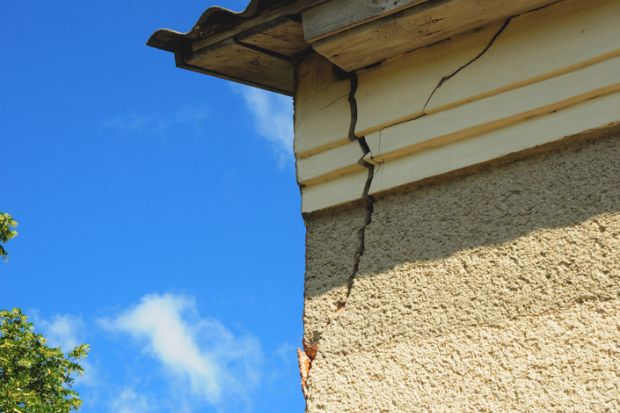The question of how to improve the quality and impact of the higher education system is a subject of intensive public discussion in Ukraine. Succeeding in this aspiration will be particularly important for post-war recovery – but it will be very difficult unless things change significantly.
A cornerstone issue of higher education is its human capital, especially the quality of its faculty. A few years ago, the European Commission made a fairly successful attempt to summarise the main factors that shape the academic profession in the European Union: namely, employment contracts, workload and salary. The question is whether Ukraine can attain EU standards in these areas.
For instance, 72 per cent of all faculty contracts across the EU are permanent, according to the commission report. Employment conditions contribute to the prestige of the academic profession and attracts human capital to it. But universities in Ukraine are obliged to follow a 2015 decree from the Ministry of Education and Science that prescribes only fixed-term contacts – which may not be any longer than five years in duration. Permanent contracts are not mentioned in that decree at all.
The Labor Code of Ukraine, by which universities are also bound, does state that employment contracts must be permanent unless another option (fixed-term contracts) is prescribed by the regulation specific to that industry. But this stipulation is widely ignored. As a result, even senior Ukrainian academics do not enjoy the job security that many of their European colleagues do.
As regards workload, northern European universities offer the most attractive conditions for young scientists just after obtaining their PhDs. According to the commission report, 65 per cent of young academics in that region have teaching duties that do not exceed 25 per cent of their total workload. But in the south and east of the continent, that figure falls to 42 per cent and 20 per cent, respectively.
It is obvious that the Ukrainian figure is no better than that for the rest of Eastern Europe, and the lack of permanent contracts only exacerbates the incentive for young academics to leave the profession.
Ukrainian legislation stipulates that full-time faculty should work 36 hours per week, but their actual workload can be much higher. Publication of two articles indexed in Scopus or the Web of Science per year is an accepted minimum threshold of research productivity, and university by-laws stipulate that each paper should take about 100 hours to produce (including the time of multiple revisions of the paper after reviewing). But the actual time, even excluding the time of multiple revisions, is higher – in Canadian and Australian universities, the actual time spent by the faculty to produce a research article is about 177 and 240 hours respectively.
This discrepancy has an inevitable effect on quality, explaining the lower impact of articles published by faculty in Ukraine: 7.87 citations per article, compared with 29.00 for Canada and 26.66 for Australia. It also explains why some Ukrainian academics work much more than their contracted hours in pursuit of more and better publications. Producing two articles a year is not enough for an academic to be well regarded by university administrators and guarantee another fixed-term contract.
The third component of the academic profession’s prestige, salary, is obviously the most critical one in the Ukrainian context. About 65 per cent of faculty in EU countries are satisfied with their salaries, according to the commission report, rising to 85 per cent in Belgium, Luxembourg, Switzerland and the Netherlands and falling to roughly 50 per cent in Greece, Romania, Slovakia, Hungary, the Czech Republic and the Baltic states.
In Ukraine, it is probably even lower. In the current Ukrainian labour market, the salary of a qualified construction worker is between one and a half and two times higher than that of a university professor (the latter being around €350 a month). You might assume that this is an effect of wartime privations, but it is noteworthy that the annual salary of a professor in a public college in the US in 1931 – just two years after the Wall Street Crash – was four to five times that of a construction worker, according to a 1936 study. More recently, that multiplier has fallen to two or three, but it is still significant. In Ukraine, however, academic salaries fell below that of construction workers many years ago, and they continue to fall in relative terms. In other words, the academic profession in Ukraine is still undergoing a significant social devaluation.
Such a loss of prestige is the result of mistakes made by public administrators – and not only since Ukraine became an independent state in 1991. For decades, the system of higher education as a whole has been disconnected from the needs of the country’s economy. Almost 60 per cent of Ukraine’s adult population now has a degree, yet Ukraine is just 75th in the 2022 Global Talent Competitiveness Index, a ranking of labour productivity per employee worldwide. And just 59 per cent of those graduates are employed – compared with 90 per cent in neighbouring Poland.
It seems that the low prestige of the academic profession in Ukraine negatively impacts the quality of higher education and its economic utility. Unless academics’ employment contracts, workloads and salaries all improve, this debilitating dynamic is unlikely to change any time soon.
Alexander Kostyuk is director of the Virtus Global Center for Corporate Governance and editor-in-chief of the journal Corporate Ownership and Control.




